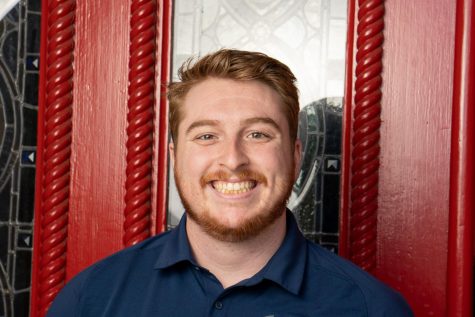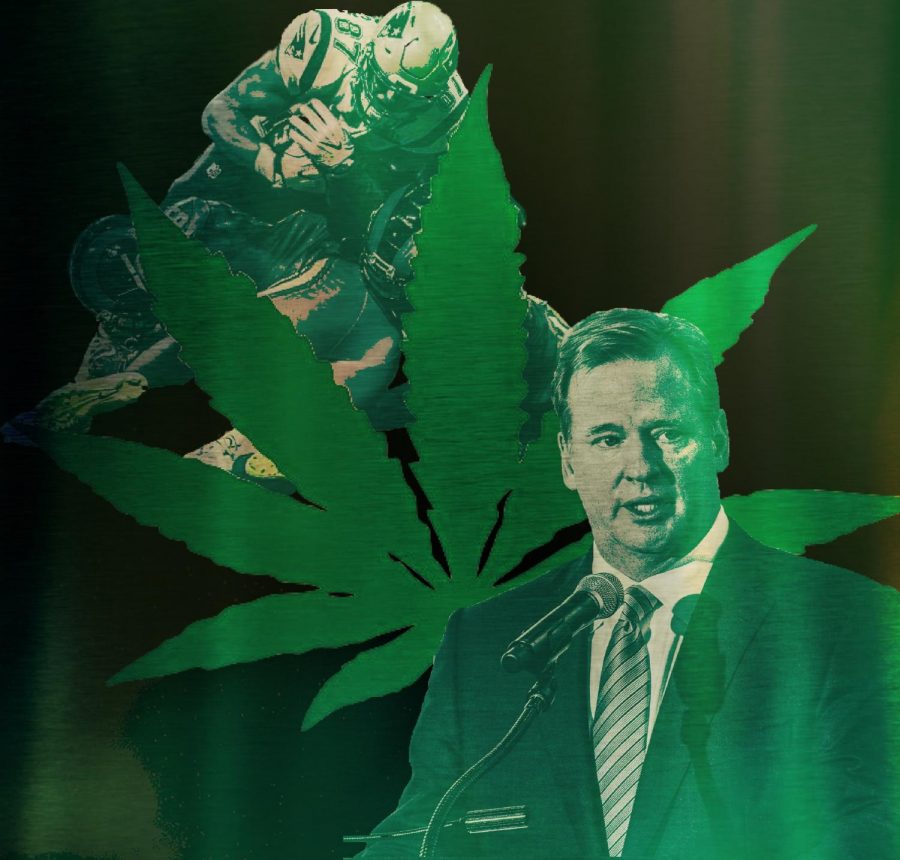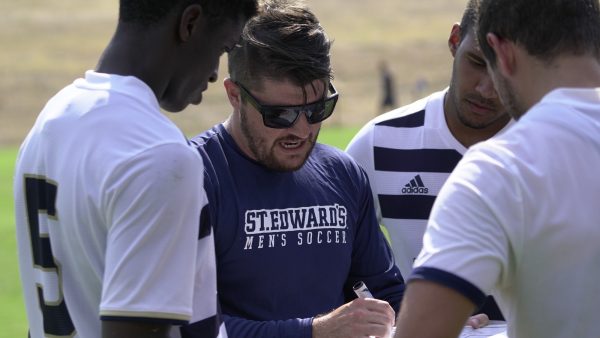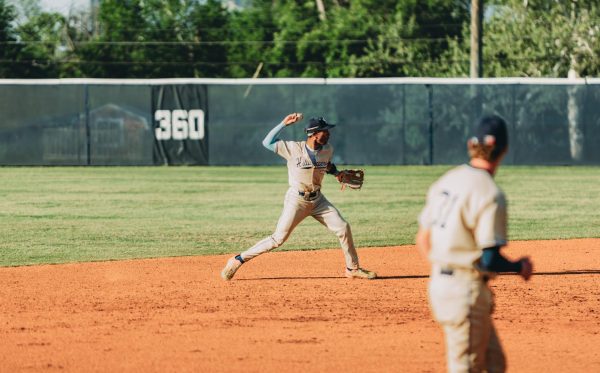COMMENTARY: NFL’s new labor agreement is right to soften regulations regarding marijuana use among players but it’s not enough
Timothy A. Clary / Hilltop Views Mashup
The NFL has decided to soften its previously strict marijuana regulations.
Last month, the NFL and the NFL Players Association ratified the league’s new 10-year labor agreement. New labor agreements usually bring small changes, like an extra percentage of league revenue going to player costs. But among the notable changes, such as an eight-team playoffs bracket or an extra regular season week, was that the league loosened its rules on marijuana use.
The NFL is not a progressive league by any means. It is one of the last leagues to loosen its rules on marijuana. While some of these changes are needed to update the league’s out of date rules, they aren’t enough.
The changes in the league’s marijuana policy state that testing can only happen in the first two weeks after training camp instead of between April and August. They also upped the amount of 9-delta tetrahydrocannabinol that can be found in the body. It went from 35 nanograms per milliliter to 150 to trigger a positive test. Lastly, they changed the rule enforcement and punishment of its players.
Players who test positive will not face suspension anymore. Still, they will be docked pay based on the number of positive tests. Also, depending on the number of positive tests, players can be forced to attend an intervention program for drug and substance abuse. Failure to comply will result in suspension, depending on the case.
While this is a step in a progressive direction, it’s not surprising that the NFL’s loosening is so constrictive. The sudden switch in course from the league has nothing to do with players demanding it, but to stay on course with other league’s rule changes on marijuana. MLB, as of recent, has removed marijuana from its banned substances list but won’t let players or teams be sponsored by them.
In a high-contact sport like football, marijuana is a safe alternative to opioids. Players should work marijuana into their injury recovery plan, with the help of their doctors, of course. In 2011, a study was done on former NFL players that found 52% used opioids during their career and 71% ended up misusing them.
Plenty of studies have shown that medical marijuana is a better alternative to opioids to relieve pain. In a study conducted by DePaul and Rush University, the majority of participants reported that they felt pain relief faster with medical marijuana and fewer side effects compared to other medications. A study conducted by the University of Michigan found that 44% of participants stopped taking prescription drugs in favor of medical marijuana or a combination of the two.
The plan to send players who test positive to “intervention programs” if they test positive is regressive. Many users, including former NFL players, have kicked their substance abuse with the help of marijuana. According to the “Weed 4: Pot or Pills,” NFL players are four times more likely to abuse opioids compared to the general public.
If the data is correct, then the NFL does not have a marijuana problem; it has an opioid problem. It’s more likely that NFL players are, or will be, addicted to opioids during their careers than marijuana. That’s not to say that you can’t get addicted to marijuana. Marijuana, like any substance (i.e., alcohol or tobacco), can become addictive. But for marijuana, the likelihood of addiction has a lot to do with genes or family history of substance abuse and having something to work for or towards (i.e., friends, family, job responsibility).
“There are people who have a glass or two of wine a day. In fact, a glass or two of wine a day is considered healthy,” Carl Hart, a professor of psychology at Columbia University, told Healthline. “Now, you certainly might see some sort of withdrawal symptom if someone’s been drinking for a few years, and they abruptly stop doing that. But that person, they’re going to work, they’re meeting their obligations, they’re handling their responsibilities. We wouldn’t call that person an addict.”
Now, NFL players would be using medical marijuana to perform through injury, just like James Turley and other players who used opioids to continue their careers. I know these changes in a conservative league are going to happen more slowly. What I fear is that medical marijuana in the NFL will be a repeat of the refusal to take concussions seriously. It will lead down a path resulting in many players gone too soon.
Former Patriots tight end Rob Gronkowski ended his career due to the amount of pain he was in following injuries. After his retirement, he started using medical marijuana as part of his recovery treatment. He said that he is pain-free for the first time in a decade. Who knows how much longer Gronkowski could have played if the NFL had even looser rules on marijuana, even going as far as to mirror the MLB’s stance?
As more states legalize medical and recreational marijuana, the NFL and other sports should look to further progress their rules on the substance. About two-thirds of the country supported marijuana legalization in 2019. With these more relaxed rules, teams in states with legal medical or recreational marijuana might see an uptick in players wanting to go there. Teams in states without it might start to take seriously the prospect of their state and the NFL doing more to legalize marijuana. That wouldn’t be a bad thing, especially with the rising concerns of fentanyl replacing both Oxycotin and heroin.
We have to remember that marijuana was only made illegal about 50 years ago. For nearly a century prior, marijuana was prescribed for pain relief, and today’s opioids (Oxycotin and fentanyl) were never meant to be a long-term solution. It also only takes five days to a month to become dependent on opioids, build a tolerance, and lead to addiction; but it’s different for everyone.
“Everyone talks about marijuana as this gateway drug, and reality is, this [football] was my gateway to drugs,” former offensive lineman Kyle Turley said in an interview for “Weed 4: Pot or Pills.”

MY name is John Walker, and I am one of the Life and Arts Section Editors. I'm a senior Communication major and journalism minor from Los Angeles, California....







